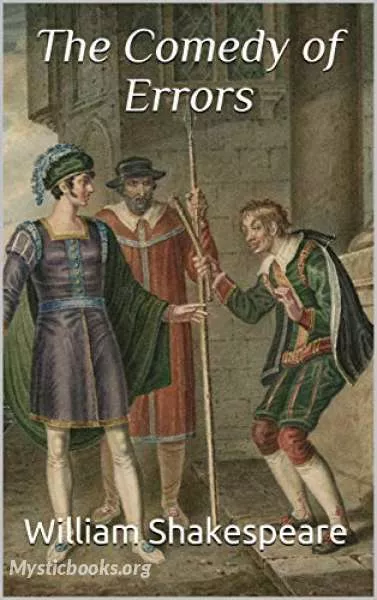
The Comedy of Errors
'The Comedy of Errors' Summary
Act I
Because a law forbids merchants from Syracuse to enter Ephesus, elderly Syracusian trader Egeon faces execution when he is discovered in the city. He can only escape by paying a fine of a thousand marks. He tells his sad story to Solinus, Duke of Ephesus. In his youth, Egeon married and had twin sons. On the same day, a poor woman without a job also gave birth to twin boys, and he purchased these as slaves to his sons. Soon afterward, the family made a sea voyage and was hit by a tempest. Egeon lashed himself to the main-mast with one son and one slave, and his wife took the other two infants. His wife was rescued by one boat, Egeon by another. Egeon never again saw his wife or the children with her. Recently his son Antipholus, now grown, and his son's slave Dromio left Syracuse to find their brothers. When Antipholus did not return, Egeon set out in search of him. The Duke is moved by this story and grants Egeon one day to pay his fine.
That same day, Antipholus arrives in Ephesus, searching for his brother. He sends Dromio to deposit some money at The Centaur, an inn. He is confounded when the identical Dromio of Ephesus appears almost immediately, denying any knowledge of the money and asking him home to dinner, where his wife is waiting. Antipholus, thinking his servant is making insubordinate jokes, beats Dromio of Ephesus.
Act II
Dromio of Ephesus returns to his mistress, Adriana, saying that her "husband" refused to come back to his house, and even pretended not to know her. Adriana, concerned that her husband's eye is straying, takes this news as confirmation of her suspicions.
Antipholus of Syracuse, who complains "I could not speak with Dromio since at first, I sent him from the mart," meets up with Dromio of Syracuse who now denies making a "joke" about Antipholus having a wife. Antipholus begins beating him. Suddenly, Adriana rushes up to Antipholus of Syracuse and begs him not to leave her. The Syracusans cannot but attribute these strange events to witchcraft, remarking that Ephesus is known as a warren for witches. Antipholus and Dromio go off with this strange woman, the one to eat dinner and the other to keep the gate.
Act III
Antipholus of Ephesus returns home for dinner and is enraged to find that he is rudely refused entry to his own house by Dromio of Syracuse, who is keeping the gate. He is ready to break down the door, but his friends persuade him not to make a scene. He decides, instead, to dine with a courtesan.
Inside the house, Antipholus of Syracuse discovers that he is very attracted to his "wife's" sister, Luciana of Smyrna, telling her "train me not, sweet mermaid, with thy note / To drown me in thy sister's flood of tears." She is flattered by his attention but worried about their moral implications. After she exits, Dromio of Syracuse announces that he has discovered that he has a wife: Nell, a hideous kitchen-maid. He describes her as "spherical, like a globe; I could find out countries in her". Antipholus jokingly asks him to identify the countries, leading to a witty exchange in which parts of her body are identified with nations. Ireland is her buttocks: "I found it out by the bogs". He claims he has discovered America and the Indies "upon her nose all o'er embellished with rubies, carbuncles, sapphires, declining their rich aspect to the hot breath of Spain; who sent whole armadas of cracks to be ballast at her nose." The Syracusans decide to leave as soon as possible, and Dromio runs off to make travel plans. Antipholus of Syracuse is then confronted by Angelo of Ephesus, a goldsmith, who claims that Antipholus ordered a chain from him. Antipholus is forced to accept the chain, and Angelo says that he will return for payment.
Act IV
Antipholus of Ephesus dispatches Dromio of Ephesus to purchase a rope so that he can beat his wife Adriana for locking him out, then is accosted by Angelo, who tells him "I thought to have ta'en you at the Porpentine" and asks to be reimbursed for the chain. He denies ever seeing it and is promptly arrested. As he is being led away, Dromio of Syracuse arrives, whereupon Antipholus dispatches him back to Adriana's house to get money for his bail. After completing this errand, Dromio of Syracuse mistakenly delivers the money to Antipholus of Syracuse. The Courtesan spies Antipholus wearing the gold chain, and says he promised it to her in exchange for her ring. The Syracusans deny this and flee.
Act V
The Courtesan resolves to tell Adriana that her husband is insane. Dromio of Ephesus returns to the arrested Antipholus of Ephesus, with the rope. Antipholus is infuriated. Adriana, Luciana, and the Courtesan enter with a conjurer named Pinch, who tries to exorcize the Ephesians, who are bound and taken to Adriana's house. The Syracusans enter, carrying swords, and everybody runs off in fear: believing that they are the Ephesians, out for vengeance after somehow escaping their bonds. Adriana reappears with henchmen, who attempt to bind the Syracusans. They take sanctuary in a nearby priory, where the Abbess resolutely protects them. Suddenly, the Abbess enters with the Syracusan twins, and everyone begins to understand the confused events of the day. Not only are the two sets of twins reunited, but the Abbess reveals that she is Egeon's wife, Emilia of Babylon. The Duke pardons Egeon. All exit into the abbey to celebrate the reunification of the family.
Book Details
Authors

William Shakespeare
United Kingdom
William Shakespeare was born on April 23, 1564, in Stratford-upon-Avon. The son of John Shakespeare and Mary Arden, he was probably educated at the King Edward VI Grammar School in Stratford, where he...
Books by William ShakespeareDownload eBooks
Listen/Download Audiobook
Related books
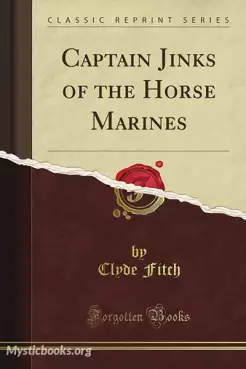
Captain Jinks of the Horse Marines by Clyde Fitch
It tells the story of a young woman named Betsy Trotwood who becomes infatuated with a handsome young soldier named Captain Jinks. The play was first...

Coast of Bohemia by William Dean Howells
In 'Coast of Bohemia,' William Dean Howells examines the clash between the conventional world of middle-class society and the unconventional realm of...

The Wild Duck by Henrik Ibsen
The Wild Duck is an 1884 play by the Norwegian playwright Henrik Ibsen. It is considered the first modern masterpiece in the genre of tragicomedy. The...
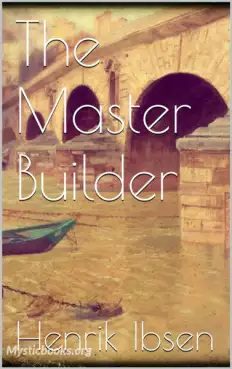
The Master Builder by Henrik Ibsen
Henrik Ibsen's The Master Builder, first published in 1892, is about architect Halvard Solness, who despite personal tragedy (including the death of h...
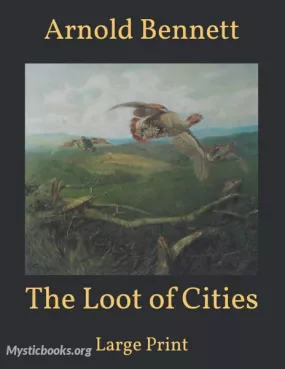
The Loot Of Cities by Arnold Bennett
The bustling streets of early 20th-century London, a city of contrasts, ambitions, and secrets. Written by the acclaimed author Arnold Bennett, this g...

Story of a Stuffed Elephant by Laura Lee Hope
The Story of a Stuffed Elephant is... well, the story of a Stuffed Elephant and the little boy who owns him, and his sister, and all their adventures....

Mariner by E. Pauline Johnson
“The Mariner” is a poignant poem by E. Pauline Johnson that explores themes of identity, loss, and the enduring spirit of Indigenous culture. The poem...

Shakespeare Monologues Collection vol. 14 by William Shakespeare
This is the fourteenth collection of monologues from Shakespeare's plays. Our readers have chosen their favourite monologues from Shakespeare's famous...

Wild Knight and Other Poems by Gilbert K. Chesterton
Gilbert K. Chesterton's "The Wild Knight and Other Poems" is a collection of verse exploring themes of wonder, faith, and the inherent beauty of the w...
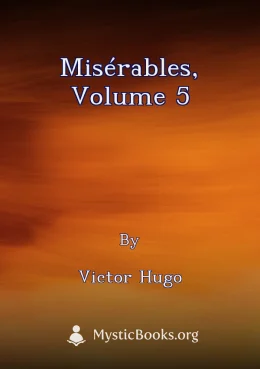
Misérables, Volume 5 by Victor Hugo
A monumental work of French literature, 'Les Misérables' is a sprawling epic that delves into the lives of various characters from all walks of life d...
Reviews for The Comedy of Errors
No reviews posted or approved, yet...